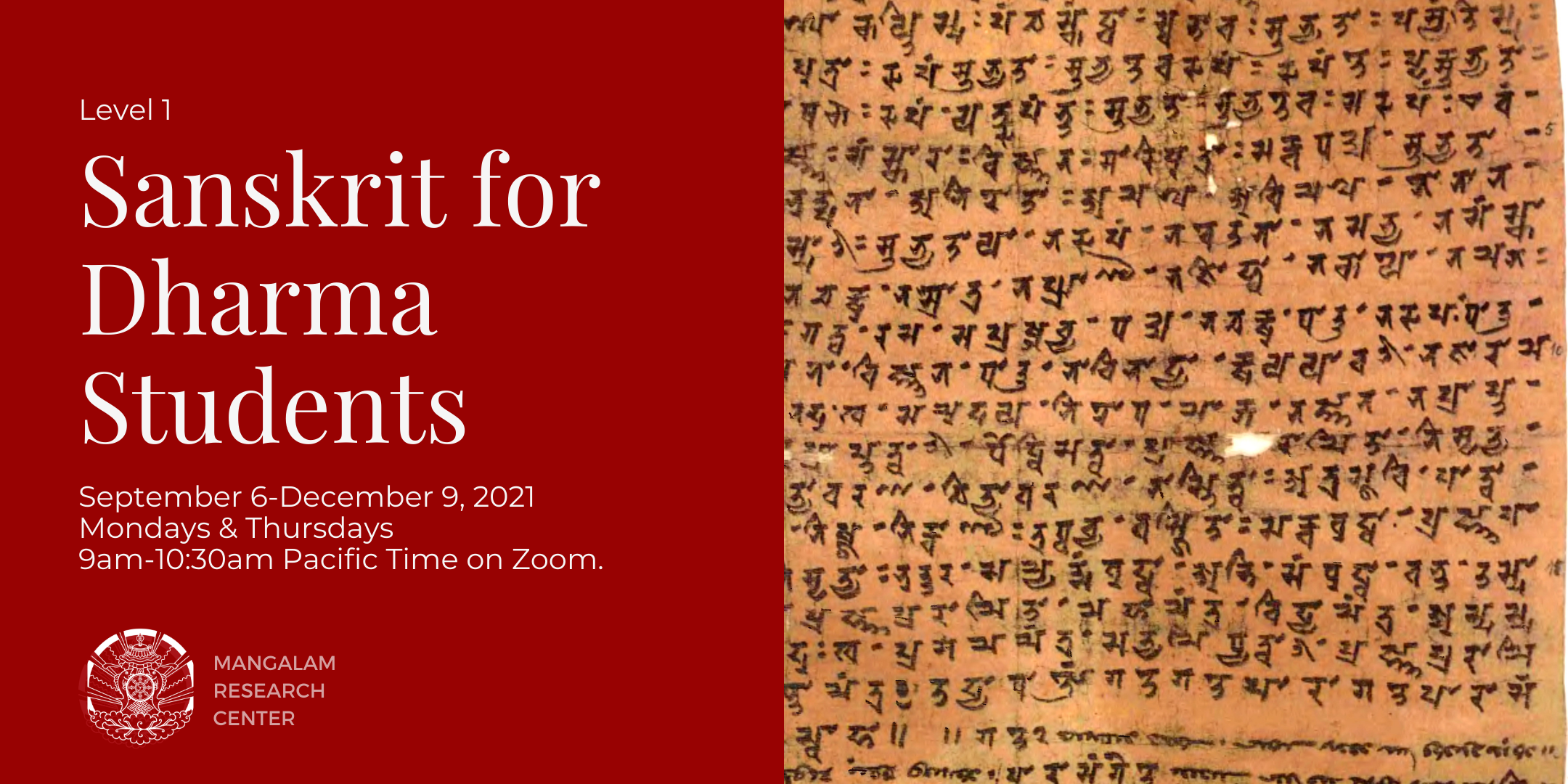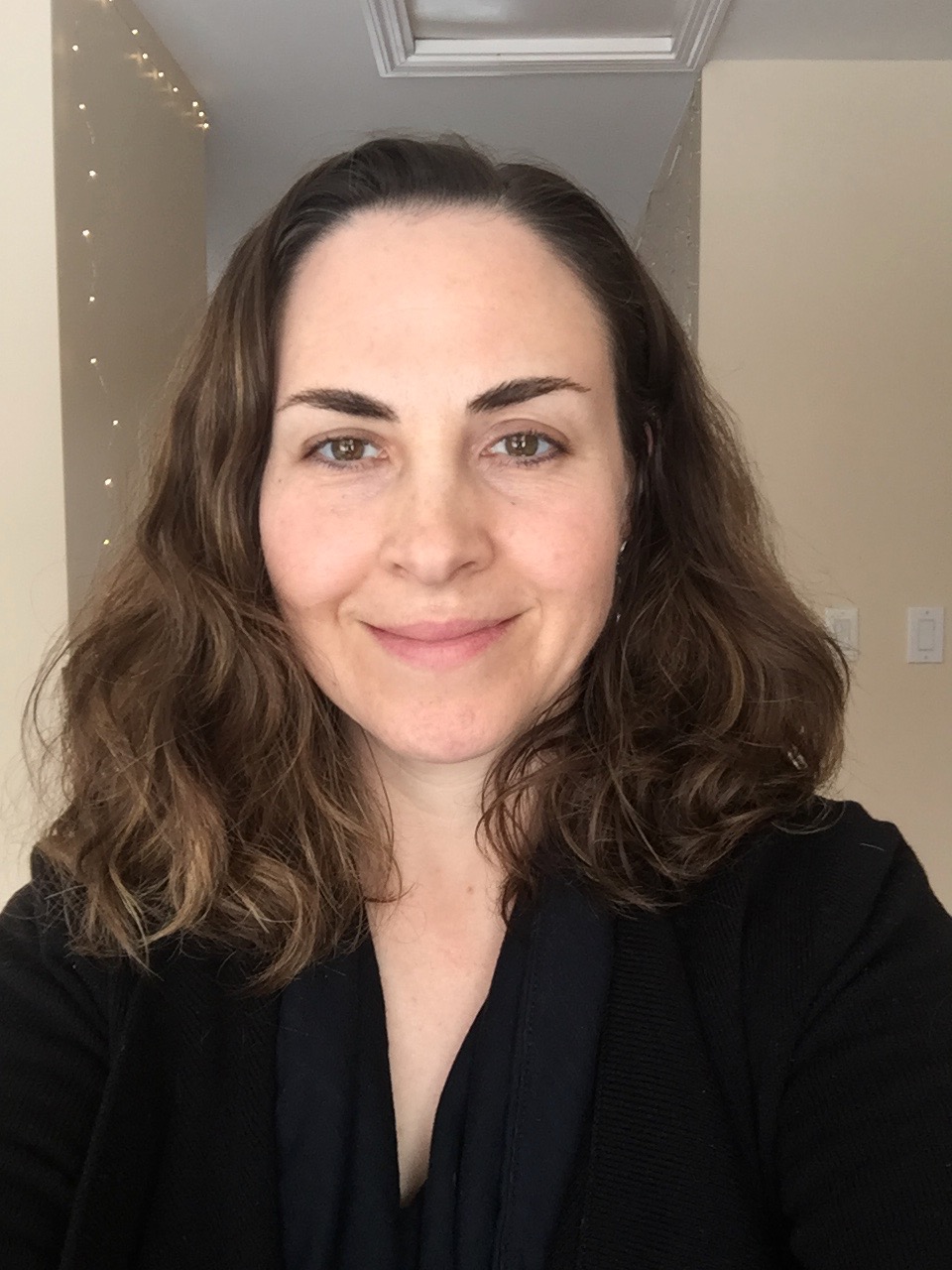
Sanskrit for Dharma Students
Sanskrit for Dharma Students, Level 1. This course is designed to support deeper engagement with the Buddha Dharma. Over twelve weeks, students will gain a foundation in Sanskrit grammar and begin reading simple Buddhist texts. It differs from most university level courses in that it emphasizes gradual assimilation of grammar through recitation, draws vocabulary and grammatical examples from Buddhist literature (most introductory courses draw on Hindu epic literature), and provides an introduction to Sanskrit grammatical concepts (essential for deeper study of Buddhist texts and commentaries).
Level 2 of the course (offered Spring 2022) will enable students to practice their reading and further ingrain grammatical structures.
Structure of the course: Class sessions will be devoted to the introduction of new grammatical structures, review of homework, and group recitation. Weekly homework will consist of recitation (about 30 minutes per day) and short written assignments (about two hours per week). Audio and video recordings will support home recitation.
Mondays & Thursdays, 9-10:30am Pacific Time on Zoom.
September 6-December 9, 2021 (no class week of October 11 or November 22)
Class limit: 16 students.
Registration Deadline: Sunday, August 22
Who is this class for?: This class is designed for motivated Dharma students. It will be slightly slower paced than a university level Sanskrit class, however, doing home recitations and written assignments, in addition to attending live class sessions, will be essential to students’ success.
Course materials developed by Mattia Salvini, International Buddhist College,
http://ibc.ac.th/en/Mattia-Salvini
Cost: $1,800. For financial assistance, please fill out our scholarship form.
About the instructor: Karin Meyers, Mangalam Research Center Academic Director, has practiced in Theravāda as well as Tibetan traditions and earned a PhD in Buddhist Philosophy at the University of Chicago Divinity School. She has taught primarily in academic contexts at several colleges and universities in the US, as well as at Kathmandu University and Rangjung Yeshe Institute’s Centre for Buddhist Studies in Nepal, where she was Director of the Master’s Program in Buddhist Studies and taught Intensive Summer Sanskrit.
Any questions about the courses should be directed to Karin Meyers (karinm@mangalamresearch.org).
Speaker
-
 Karin MeyersAcademic Director
Karin MeyersAcademic DirectorKarin received a PhD with distinction from The University of Chicago Divinity School in 2010, and since then has taught Buddhist Studies at several colleges and universities in the US and abroad, including Kathmandu University and Rangjung Yeshe Institute’s Centre for Buddhist Studies in Nepal, where she directed the masters program in Buddhist Studies until returning to the US in 2017. Karin’s scholarly work focuses on bringing Buddhist perspectives to bear on cross-cultural and interdisciplinary inquiry into fundamental metaphysical, epistemological, and ethical questions. Karin has practiced Buddhism in Tibetan and Theravāda traditions and took a year in 2019 to serve as retreat support fellow at the Insight Meditation Society in Barre, MA. Before attending graduate school she worked at the Buddhist Peace Fellowship in the Bay Area and has recently returned to these socially engaged roots, promoting Buddhist activism in regard to the accelerating climate and ecological crisis.
As Academic Director, Karin will develop and teach Buddhist Studies courses in Mangalam’s residential and public programs; host public talks, conversations and conferences with academic scholars of Buddhist studies and related fields; and contribute to Mangalam’s publications and language programs, offering occasional courses in Pali, Sanskrit and Tibetan. Her mission is to help make scholarly research and classical Buddhist traditions accessible to Dharma practitioners, and to draw on these resources to support and inspire socially and ecologically engaged Buddhist thought and practice.

